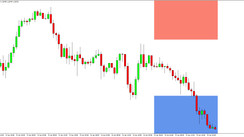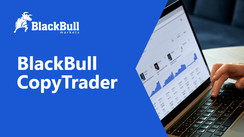Most traders read the statements of risk warnings and in the back of their minds understand that trading is risky, but often feel protected from this risk by a magical shield or that their strategy is completely bullet proof. The only truly risk free strategy, in terms of trading, is not to trade at all. But then there is a risk of feeling like you have missed an opportunity, on profits, on positive emotions, or a sense of success . In other words - the emotional risk.
The trader’s attitude is important, and it can either make or break his account. There are many things that build up up the attitude. The basic step of accepting the inherent risk in trading goes a long way in creating a positive trader’s mindset, which is vital in trading.
There are two main reasons why traders fail. Firstly, the market conditions are beyond our control and it is possible to interpret the market movements incorrectly. This is normal. Secondly, a trader can make an error. This second reason is one of the biggest differences between a consistent and good trader from an inconsistent and bad (or average) trader.
How does the trader error occur and how can it be minimised?
First of all, most errors happen when a trader does not follow their own trading strategy. This can lead to either taking losses, which are bigger than planned, or taking profits, which are smaller than they could have been. Once this happens, the trader is overcome by emotions, as his expectations were not met, and this is when trouble kicks in.
That feeling when you have lost a trade which had the perfect set up and you were on a sure shot winner of a trade, you want to get back what you have lost. Familiar? Well, the next trade, while being overcome by this emotion, is generally an irrational one and will have one of two effects. It is either also a losing trade, which creates more irrational behaviour and deviation from the trading strategy. Or it can actually be successful, which is even more harmful. This plants the false sense of security in the trader’s mind that whenever we have a losing trade, we can do this and it will all be OK.
How can you lose more than you planned? It happens when you are not accepting the fact that the trade is lost, and continue to keep it open in hopes of the market turning round. You remove all your stops and just say that you will ride this out as it will surely turn. Yes, it may turn, but generally it happens after you have lost all your capital, which is too late for anything.
How do we overcome this?
You should take trading like any business, just accept that you will have losing trades and they are part of your business expense. That way you are emotionally detached from them and just accept the risk.
This is particularly hard for a trader with relatively low experience. That is why you plan your trades. Have an entry strategy and more importantly an exit strategy, and this should include an acceptable loss, allowing normal market fluctuations and an acceptable profit without being greedy. Once this has been determined and the trade has been made, the process requires no further intervention. Obviously, more advanced traders can look at multiple exit points and trailing stops, but these only occur if the first target has been achieved and again part of the plan before the trade has been entered.
One of the advantages of setting the exit levels, is to know the distance between entry and exit – this means that you can calculate, based on the trade size, the exact risk and reward. Also you will have an idea how much that is, compared to the overall equity on the account. If the risk is high, then one can either reduce the risk by reducing the size of the trade, or increasing the equity on the account.
There is no way to predict the outcome of a trade or the market movement with a 100% accuracy , but what is in your control, is your trading plan, your trading strategy and your emotions. If these are all kept in check, then half of the battle is won and you will be consistent with your results.
About the author:
Tickmill is a trading name of Tickmill UK Ltd, a member of Tickmill Group, which is authorised and regulated by the Financial Conduct Authority (FCA) of the United Kingdom.
With a proven track record of strong financial results and stable growth, Tickmill has put itself in an enviable position as a trusted market leader and innovator.
Built by traders for traders, Tickmill’s team members have trading experience that spans back to the 80s and have successfully traded on all major financial markets from Asia to North America. Start trading with Tickmill at spreads as low as 0.0 pips and some of the lowest commissions on the market.





